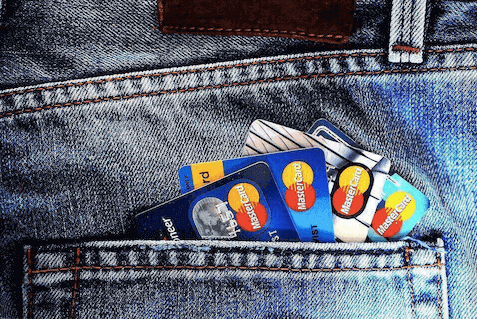Obtaining a loan with bad credit can be challenging, but it is not impossible. While traditional lenders like banks and credit unions may be hesitant to approve loans for individuals with low credit scores, there are still options available. In this comprehensive guide, Dollar Hand will explore various types of loans that are relatively easier to secure with bad credit, along with some useful tips on how to increase your chances of approval and ways to improve your credit score.
What is Bad Credit?
Before delving into the types of loans available to individuals with bad credit, it is important to understand what constitutes bad credit and why it can be a hindrance to loan approval. Bad credit typically refers to a low credit score, which is a numerical representation of your creditworthiness. Credit scores are often calculated based on your payment history, amounts owed, length of credit history, new credit and types of credit in use.
Credit scores typically range from 300 to 850, with higher scores indicating better creditworthiness. A credit score below 580 is generally considered poor or bad credit.

Why Does Bad Credit Matter?
Lenders use your credit score to assess the risk of lending you money. A lower credit score suggests a higher risk of defaulting on the loan. Bad credit can lead to loan rejections or approval with unfavorable terms, such as higher interest rates or a shorter loan term.
What Types of Loans Are Easier To Get With Bad Credit?
While bad credit can limit your borrowing options, there are still several types of loans that are relatively easier to secure. This includes:
Payday Loans
Payday loans are short term, typically small dollar loans, that are designed to cover immediate expenses and important emergency costs until you receive your next paycheck. They typically do not require a credit check, making payday loans accessible to individuals with bad credit. However, payday loans usually come with high interest rates and fees, and they often lead to a cycle of debt.
Title Loans
Title loans involve using your vehicle’s title as collateral for a short term loan. Credit checks are minimal, as the loan is secured by the vehicle. Title loans can be risky, as defaulting on the loan may result in the loss of your vehicle.
Pawn Shop Loans
Pawn shops offer loans in exchange for items of value, such as jewelry or electronics. Credit checks are not required, as the loan is secured by the item. If you fail to repay the loan, the pawn shop may sell the item to recoup their losses.
Installment Loans For Bad Credit
Some lenders specialize in providing installment loans for individuals with bad credit. These loans are typically repaid in fixed monthly installments over a set period. While interest rates may be higher than traditional loans, they can be more manageable than payday or title loans.
Secured Personal Loans
Secured personal loans require collateral, such as a savings account or a valuable asset, to secure the loan. Collateral reduces the lender’s risk, making it easier to get approved. Defaulting on a secured personal loan can result in the loss of the collateral.
Online Lenders
Online lenders, including peer-to-peer lending platforms, may have more lenient credit requirements compared to traditional banks. These lenders consider other factors, such as income and employment history, in addition to credit scores.
Credit Union Loans
Some credit unions offer loans to their members with less stringent credit requirements than traditional banks. Joining a credit union and building a relationship with them can improve your chances of loan approval.

Tips To Improve Your Chances Of Loan Approval With Bad Credit
While these loan options may be easier to secure with bad credit, there are steps you can take to enhance your eligibility and obtain better terms. See examples in the table below:
| Check Your Credit Report: | Obtain a free copy of your credit report from one of the three major credit bureaus (Equifax, Experian, and TransUnion). Review your report for errors or inaccuracies, and dispute any discrepancies you find. |
| Build or Improve Your Credit: | Pay your bills on time to establish a positive payment history. Reduce outstanding debt to improve your credit utilization ratio. Consider becoming an authorized user on someone else’s credit card to piggyback on their positive credit history. |
| Shop Around: | Compare loan offers from multiple lenders to find the best terms and interest rates. Online loan comparison platforms can help you explore different options. |
| Consider a Co-Signer: | If you have a trusted friend or family member with good credit, they can co-sign your loan, increasing your chances of approval and securing better terms. |
| Offer Collateral: | If applying for a secured loan, be prepared to offer collateral, such as a vehicle or savings account. |
| Show Stable Income: | Demonstrating a stable source of income can improve your loan eligibility. Provide proof of employment, pay stubs or other income documentation. |
| Borrow Responsibly: | Only borrow what you can afford to repay. Avoid taking on more debt than necessary to prevent further financial strain. |
Final Thoughts
While obtaining a loan with bad credit may be challenging, it is possible, thanks to various options available. It is essential to understand the types of loans that are easier to get with bad credit and the associated risks and costs.
Additionally, taking steps to improve your creditworthiness and exploring alternatives to high cost loans can help you navigate financial challenges more effectively. Always make informed decisions when seeking loans, and prioritize financial stability and responsible borrowing.
Was this article helpful?
Justine is a full-time writer with lots of expertise and a wealth of experience in the financial world. In particular, she specializes in household income and consumer finance across the United States. Follow her articles for useful advice and top tips, guides on how to save money and lots more.
